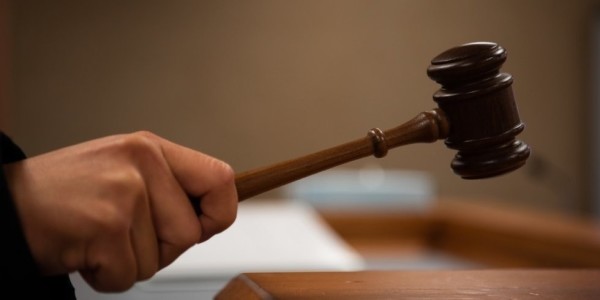

A military judge has dismissed all charges against an airman who had been accused of sexually assaulting three women because the convening authority in the case refused to force the alleged victims to hand over information to the defense.
Staff Sgt. Keith Snyder was initially charged with five specifications of sexual assault, but three specifications were dropped in April when one of the alleged victims decided not to pursue the matter further, according to Snyder’s charge sheet, which was provided to Task & Purpose. Snyder is assigned to the 45th Civil Engineer Squadron at Patrick Air Force Base, Florida.
On Aug. 22, Air Force Col. W. Shane Cohen, the military judge in the case, dismissed the charges against Snyder with prejudice, which means the prosecution cannot file the same charges against him again. Rowan Scarborough of the Washington Times first reported on Cohen’s decision.
Despite the military’s rules about evidence at trials, Air Force Maj. Gen. Stephen Whiting, commander of 14th Air Force, ordered the prosecution not to enforce subpoenas for the alleged victims’ external hard drives, information saved to the cloud, and other devices, on which they had stored information about the case, Cohen wrote.
Snyder’s defense attorney discovered that the three women had failed to disclose thousands of emails, texts, social media posts, and other messages in which they allegedly talked about tampering with witnesses and threatening the defense’s investigator, said Snyder’s attorney Aaron G. Meyer. This supposedly “lost” material had been backed up on different devices.
“Here is a small sampling of things they said in their group messages and in messages to third parties: In 2017, before ANY claim of rape, the three colluded on Instagram,” Meyer wrote in an email. “They said things, to include: ‘He did this to himself…he has lied and cheated on each of us….’ They said he needs to be taken down ‘both civilly and criminally’ and receive ‘perhaps a temporary reprieve from his children.'”
While Cohen praised efforts to treat the alleged victims in the case with dignity and respect, he also ruled the government had “abdicated its responsibility” to make sure all relevant evidence was available to the defense.
“Based on the current state of the evidence and the unwillingness of the government to exercise its authority to compel relevant and necessary information, the accused cannot get a fair trial,” Cohen wrote. “If the government is unwilling to meet its obligations under the law and pursue justice by ensuring the accused’s rights to due process, the accused should not be prosecuted.”
Maj. Cody Chiles, spokesman for 14th Air Force, said on Tuesday that the command is committed to providing “maximum possible support” to sexual assault victims while ensuring due process.
“In this case, Maj. Gen. Whiting supported issuing subpoenas to seek to retrieve all relevant information in the case,” Chiles said in a statement. “However, DoD policy is to generally honor the wishes of a victim regarding participation or non-participation in a prosecution. Seizing this evidence without the victims’ consent would have been inconsistent with this policy.”
“Additionally, after the motion to dismiss the charges had been argued, the victims offered to provide additional evidence in response to the subpoena,” Chiles continued. “Given that additional information would have been forthcoming in response to the subpoenas, Maj. Gen. Whiting thought there was sufficient reason to allow the hearing on motions to proceed. The judge disagreed, however. Maj. Gen. Whiting respects the decision of the judge.”
Although Cohen was correct that Snyder would not have received a fair trial without access to all the evidence, dismissing the charges with prejudice punishes the three women who accused Snyder of sexual assault more than the convening authority, said retired Air Force Col. Don Christensen, a former military judge.
It would have been better for Cohen to dismiss the charges without prejudice, which would have allowed the case to move forward “in the event that the government got their act together,” said Christensen, president of the advocacy group Protect Our Defenders.
“I agree that …if there was evidence out there, that it be properly subpoenaed,” Christensen said. “But when the convening authority refuses to do that, you don’t make the victims pay the price. As a judge, you figure out a better way to do that.”